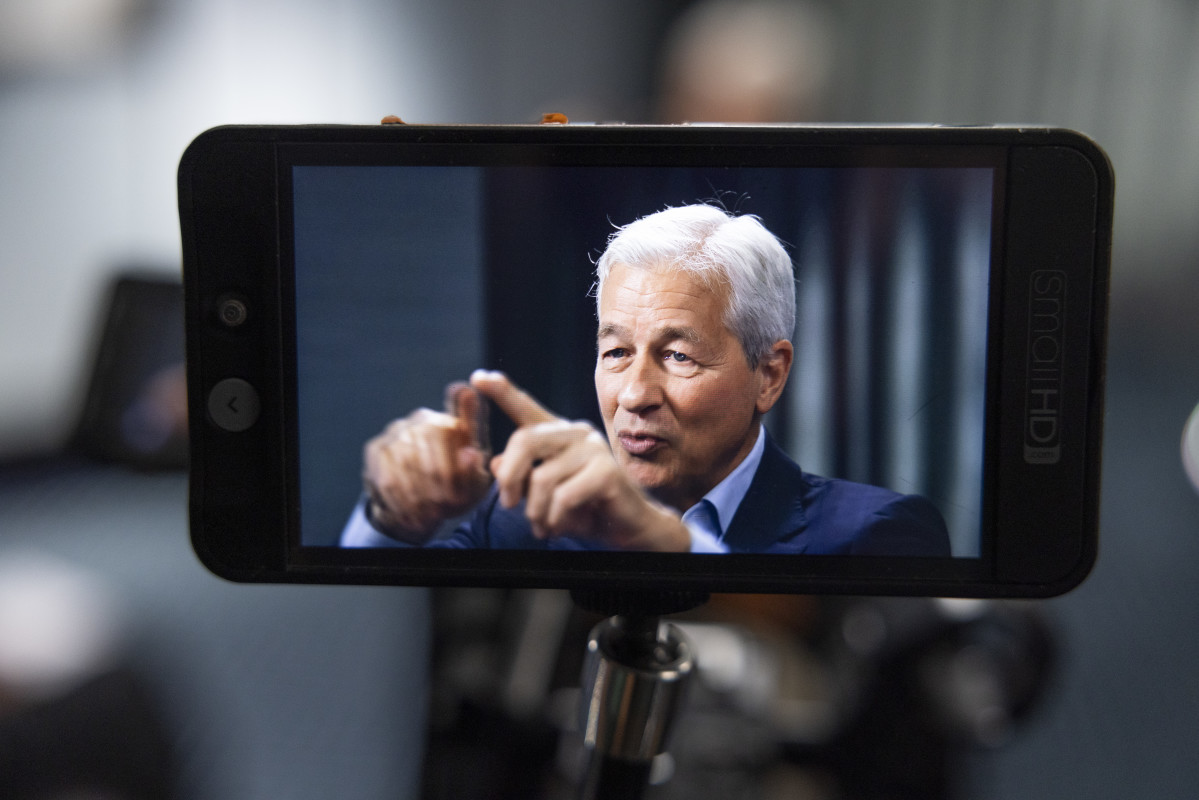
JPMorgan Chase (JPM) -) CEO Jamie Dimon is among the world's most respected and influential business leaders. His ability to successfully navigate tough times has led to JPMorgan becoming a global powerhouse with $2.6 trillion in assets, millions of clients, and offices within 100 countries.
As the head of an organization employing over 240,000 workers, he has unique insights into the future of employment that everyone should pay attention to. Recently, he shared a stunning prediction about the future that, if it comes true, will reshape how people work.

JPMorgan is reshaping itself for the future
The Covid pandemic caused companies to reimagine workplaces, ushering in a new era of remote and hybrid work that would have previously been unthinkable. Millions of people log in to work now rather than make the commute to the office.
According to the Bureau of Labor Statistics, roughly 28% of people are employed in jobs that allow for remote work. Other studies suggest that understates how widespread remote work has become. According to MIT researchers, about 50% of workers spend at least one day working away from offices weekly.
Many companies, including JP Morgan, are walking back alternative work solutions this year. Still, the reality is that how we work has changed significantly in a very short period of time.
Related: Jamie Dimon issues two major warnings about the economy
How we work may change even more in the future because of artificial intelligence. AI development is surging this year following the successful launch of the generative AI app ChatGPT last December. Companies across most industries are plowing big money into developing AI solutions to increase efficiency and reduce costs, and those investments could have significant repercussions for workers.
Recently, Dimon shared insight into JP Morgan's own AI initiatives. During an interview with Bloomberg, Dimon explained that the big bank is already exploring use cases for artificial intelligence. He also acknowledged that JP Morgan already uses AI to perform all of the bank's equity hedging.
As more AI programs are trained and implemented, more roles previously left to humans will disappear.
"AI is real. We already have thousands of people doing it," said Dimon. "Every single process, so errors, trading, hedging, research, every app, every database will be applying AI. So, it might be as a co-pilot. It might be to replace humans."
More Jobs
- Amazon issues a hard-nosed warning to workers
- General Motors delivers message to UAW workers
- Wall Street bankers want to take away your favorite work perk
The potential for AI to do common or complex tasks quickly could mean fewer workers are needed at JP Morgan and elsewhere. Dimon responded, "Of course," when asked if AI would replace some jobs.
The risk of job loss aside, it might not be all bad for workers. AI could simplify workflows, allowing employees more time to focus on more meaningful tasks. It could also improve the quality of life.
"Your children will live to be 100 and not have cancer because of technology," said Dimon. "Literally, they'll probably be working three and a half days a week. Technology has done unbelievable things for mankind."
Many would welcome the potential for shorter work weeks, given growing interest worldwide.
A trial conducted in the U.K. in 2022 involving over 2,000 workers found that a four-day workweek boosted job satisfaction and work-life balance and lowered worker stress. Product quality and customer service improved, with fewer missed work days.
A four-day workweek is also among United Auto Workers demands to resolve its ongoing strike against the big three automakers, General Motors, Ford, and Stellantis.
Dimon expects some jobs will disappear, but he also suggests companies will try to fit displaced workers into new roles. At JP Morgan, Dimon said, "If it replaces jobs, we hope to redeploy people."
Forget JPMorgan: Sign up to see which stocks we’re buying now







